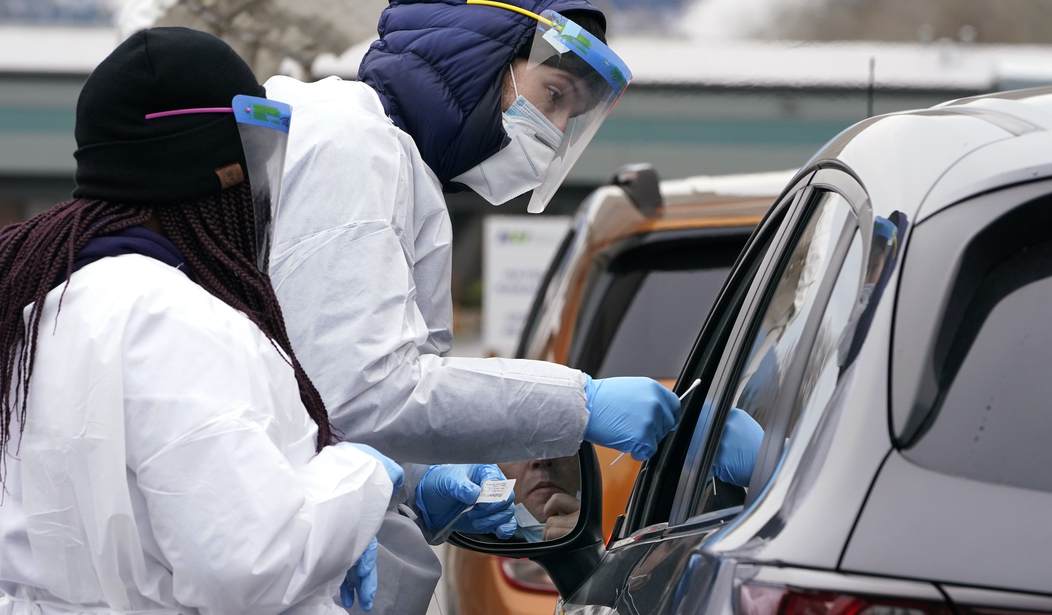We've been reporting all along that the data from South Africa, where Omicron was first announced last month to be a "variant of concern," has been hopeful. A "Breaking News" update from The New York Times on Thursday further confirmed this, with such an update being referred to as "cautious hope."
Breaking News: South Africa said health data suggested its Omicron peak had passed with no major spike in deaths, offering cautious hope to other countries. https://t.co/rCto7nPHg8
— The New York Times (@nytimes) December 30, 2021
The announcement came as part of the outlets "Covid Live Updates," indicating that "South Africa says that it has passed its fourth wave of cases, and counts few added deaths."
The data cited comes from the South African Medical Research Council. Fareed Abdullah, who is the director of the Office of AIDS & TB Research there called the surge of Omicron "a flash flood more than a wave."
The South African Medical Research Center, as I covered earlier this month, had also noted that in Tshwane, a metropolitan area that includes the capital city of Pretoria, many hospitalizations with Omicron were "incidental COVID admissions," meaning the person who was admitted had the virus but was admitted for something else.
Abdullah also tweeted further good news for Tshwane.
This household seroprevalence study preprint from Shabir Madhi and colleagues shows 66% hybrid immunity in the City of Tshwane where we found decreased disease severity in our hospital. https://t.co/ry1XGeECyM
— Fareed Abdullah (@fareedabdullah0) December 30, 2021
Recommended
As The New York Times noted:
“The speed with which the Omicron-driven fourth wave rose, peaked and then declined has been staggering,” said Fareed Abdullah of the South African Medical Research Council. “Peak in four weeks and precipitous decline in another two. This Omicron wave is over in the city of Tshwane. It was a flash flood more than a wave.” The rise in deaths over the period was small, and in the last week, officials said, “marginal.”
...
In South Africa, overall case counts have been falling for two weeks, plummeting 30 percent in the last week to an average of less than 11,500 a day. Confirmed cases declined in all provinces except Western Cape and Eastern Cape, the data showed, and there was a drop in hospitalizations in all provinces except Western Cape.
The repot noted "caveats" including reduced testing during the holidays. "And many people in the most affected area had some measure of immunity, either from vaccination, prior infection or both, that might have protected them from serious illness," it was also noted, which ought to be considered hopeful news.
As I recently covered, multiple studies from several countries have confirmed that Omicron, while more contagious, is less likely to lead to hospitalizations than the Delta variant.
Because Omicron is so contagious, cases have gone up. However, as Landon reported on Sunday, Brown University School of Public Health Dean Ashish K. Jha said on ABC's "This Week" that the surge of cases shouldn't be considered a "major metric" anymore. "But we really need to focus on hospitalizations and deaths now," he added.
Holy hell. It’s always been this way! https://t.co/mCKeDZn1vB
— Katie Pavlich (@KatiePavlich) December 28, 2021
Even leftist Jennifer Rubin got on board with the concept, eventually.
























Join the conversation as a VIP Member